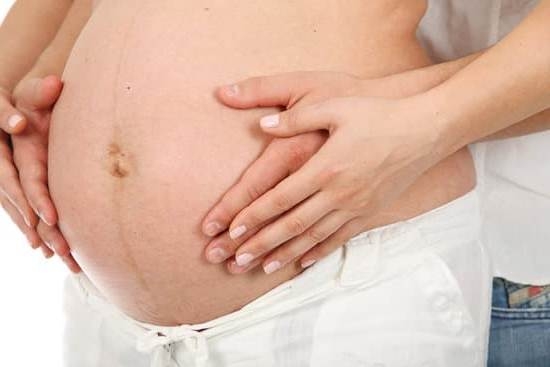Early Pregnancy Symptoms Vs Pms
Symptoms
One of the most common questions that women have during their reproductive years is how to differentiate between early pregnancy symptoms and premenstrual syndrome (PMS) symptoms. While there is no foolproof way to do this, there are a few key differences between the two that can help you figure out which you are experiencing.
The first step is to understand that early pregnancy symptoms and PMS symptoms can be very similar. Both can cause bloating, breast tenderness, fatigue, and headaches. However, there are a few key distinctions between the two.
For one, early pregnancy symptoms are often more pronounced. You may find that you are suddenly very tired, for example, or that your breasts are extremely tender. In contrast, PMS symptoms are usually more mild. They may cause some fatigue and bloating, but they are not usually as severe as early pregnancy symptoms.
Another key difference between early pregnancy symptoms and PMS symptoms is that early pregnancy symptoms tend to last throughout the entire first trimester. PMS symptoms, on the other hand, usually go away after a few days once your period begins.
If you are unsure whether you are experiencing early pregnancy symptoms or PMS symptoms, it is best to consult with your doctor. He or she can help you to determine whether you are pregnant or not and can provide you with additional advice and support.
Period-Like Bleeding During Early Pregnancy
Many women experience some type of bleeding during early pregnancy. This bleeding can be light or heavy, and it can last for a few days or a few weeks. For most women, this bleeding is just a normal part of early pregnancy. However, for a small number of women, this bleeding can be a sign of a problem.
Most women who experience bleeding during early pregnancy will go on to have a healthy pregnancy. However, there is a small risk of problems such as miscarriage, ectopic pregnancy, and preterm labor. If you experience any type of bleeding during early pregnancy, be sure to contact your healthcare provider.
There are many possible causes of bleeding during early pregnancy. The most common cause is implantation bleeding, which occurs when the fertilized egg attaches to the lining of the uterus. Implantation bleeding is usually light and lasts for only a few days. Other causes of bleeding during early pregnancy include:
-miscarriage
-ectopic pregnancy
-placental implantation problems
-uterine infection
-blood clotting problems
-uterine polyps or fibroids
If you experience any type of bleeding during early pregnancy, be sure to contact your healthcare provider. Your provider will likely order some tests to determine the cause of your bleeding. Treatment will depend on the cause of your bleeding.
Early Pregnancy Line On Stomach
A faint early pregnancy line on your stomach may be the first sign that you are pregnant. This line, called the linea nigra, is a dark line that may form on your stomach during pregnancy. The linea nigra is caused by an increase in the production of the pigment melanin.
Melanin is a dark pigment that is produced by the skin cells called melanocytes. During pregnancy, the melanocytes in the skin produce more melanin, which causes the linea nigra to form. The linea nigra may also form during puberty and in women who are taking birth control pills.
The linea nigra is usually darkest during the third trimester of pregnancy. It may gradually fade after the baby is born, but may take several months to disappear completely. Some women may have a linea nigra that persists after pregnancy.
If you are pregnant, the linea nigra may be one of the first signs that you are pregnant. However, not all pregnant women will have a linea nigra. Other signs of pregnancy may include nausea, fatigue, and a missed period.
If you are pregnant and have a linea nigra, you should consult with your doctor. The linea nigra may be a sign of pregnancy, but it may also be a sign of another condition, such as skin cancer. Your doctor can help you determine if the linea nigra is a sign of pregnancy or another condition.
Taking Progesterone In Early Pregnancy
Reduces the Risk of Miscarriage
Miscarriage is a common complication of early pregnancy, occurring in about 15-20% of all pregnancies. While the cause of miscarriage is often not clear, there is evidence that progesterone may play a role in preventing miscarriage.
Progesterone is a hormone produced by the ovaries that is important for maintaining a pregnancy. Progesterone levels increase during early pregnancy, and may be important in preventing miscarriage.
One way to increase progesterone levels is to take progesterone supplements. A number of studies have shown that taking progesterone supplements in early pregnancy reduces the risk of miscarriage.
For example, a study published in the journal Obstetrics and Gynecology in 2002 looked at the effect of progesterone supplementation on the risk of miscarriage in women with a history of recurrent miscarriage. The study found that taking progesterone supplements reduced the risk of miscarriage by 50%.
Another study, published in the journal Fertility and Sterility in 2004, looked at the effect of progesterone supplementation on the risk of miscarriage in women with early pregnancy loss. The study found that taking progesterone supplements reduced the risk of miscarriage by 64%.
While not all studies have shown a benefit of progesterone supplementation, the majority of studies suggest that progesterone may play a role in preventing miscarriage. If you are experiencing recurrent miscarriage, you may want to ask your doctor about taking progesterone supplements.
Anus Bleeding During Early Pregnancy
Anus bleeding during early pregnancy can be quite alarming. It is not, however, a common occurrence. In most cases, it is not a sign of anything serious. There are a number of potential causes of anus bleeding during early pregnancy, and most of them are not cause for alarm.
One potential cause of anus bleeding during early pregnancy is hemorrhoids. Hemorrhoids are swollen veins in the rectum or anus. They can often cause pain, itching, and bleeding. Hemorrhoids are a common problem during pregnancy, because the hormone progesterone causes the veins in the area to swell.
Another potential cause of anus bleeding during early pregnancy is a tear in the rectal lining. This can occur if you strain during a bowel movement or if you have a hard time passing stool. A tear in the rectal lining can also cause pain and itching.
In rare cases, anus bleeding during early pregnancy can be a sign of a more serious problem, such as a miscarriage or ectopic pregnancy. If you experience any sudden, severe pain in your abdomen, seek medical attention immediately.
If you are experiencing anus bleeding during early pregnancy, there are a few things that you can do to help relieve the symptoms. Try taking a warm bath or using a hot compress on the area. You can also take over-the-counter pain relievers, such as ibuprofen or acetaminophen.
If the bleeding persists or if you experience any other symptoms, such as pain or fever, contact your doctor. Your doctor will be able to determine the cause of the bleeding and prescribe the appropriate treatment.

Welcome to my fertility blog. This is a space where I will be sharing my experiences as I navigate through the world of fertility treatments, as well as provide information and resources about fertility and pregnancy.





